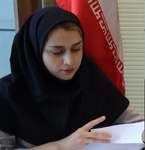The report from the United Nations Economic and Social Commission for Asia and the Pacific (ESCAP) and the Bangladesh-based social enterprise Waste Concern, “Valuing Waste, Transforming Cities”, compiles the results and lessons learned from a six-year regional programme run by ESCAP to provide concrete recommendations for governments to address the growing waste crisis in the Asia-Pacific region.
Although largely under-reported, the scale and extent of the region’s waste problem is grave and expected to worsen over the next ten years. Current estimates suggest the region’s generation of waste will rise from one million tonnes per day in 2012 to around 2.5 million tonnes by 2025.
However, this rising quantity of waste offers a considerable and largely untapped opportunity, the report indicates.
A large proportion of the solid waste generated in low- and middle-income urban areas is organic, ranging from 52-65 percent, but climbing as high as 80 per cent in some cities.
This waste, which includes food scraps and garden waste, can be recycled into compost, or transformed into biogas and used as an energy source. In addition, inorganic materials which could be sorted for recycling, like paper, plastic and glass, make up a further 26-33 per cent of municipal solid waste in the countries contributing to the report.
To illustrate the significant opportunity for resource recovery and recycling that this presents, the recommendations outlined in the report draw on six years of field-tested activities, strategies and models for pro-poor, sustainable municipal solid waste management.
Furthermore, the report recommends the use of integrated resource recovery centres, the low-cost, low-technology, community-based and decentralized waste-to-resource model used by Waste Concern in Bangladesh. To support this, the repor t provides guidance for policymakers in establishing and managing similarly successful waste-to-resource initiatives in towns and cities in the Asia-Pacific region.
United Nations Under-Secretary-General and Executive Secretary of ESCAP Dr. Shamshad Akhtar said: “Solid waste has become a critical challenge for the towns and cities of our region, and serious action is needed. If the waste-to-resource approach and associated activities are adopted, towns and cities across Asia and the Pacific will become cleaner, greener, more sustainable, healthier and more inclusive.”
Mr. Iftekhar Enayetullah, Co-Founder and Director of Waste Concern, Bangladesh said: “Our waste-to-resource model, the integrated resource recovery centre, is built on the fact that up to 90 per cent of solid waste can be recycled.”
Mr. Ngo Hoang Nam, Chairman of the People’s Committee of Quy Nhon, Viet Nam added: “In Quy Nhon City, we are proud to have built and managed an Integrated Resource Recovery Centre. It has been hard work and challenging.
However, with the determination of the whole city, we are modifying our solid waste management system. The idea of ‘waste-to-resource’ has been at the heart of this change.”
Launched during the first day of the Sixth Asia-Pacific Urban Forum in Jakarta, Indonesia, Valuing Waste, Transforming Cities distils lessons learned by ESCAP and its partners in 17 cities and six countries to provide guidance, lessons and recommendations on integrated waste management.
These lessons are grouped around four important areas for waste-to-resource initiatives: partnerships; awareness raising and behaviour change; facilities management and operational performance; and replication and scaling up.
LR/PR

























Your Comment